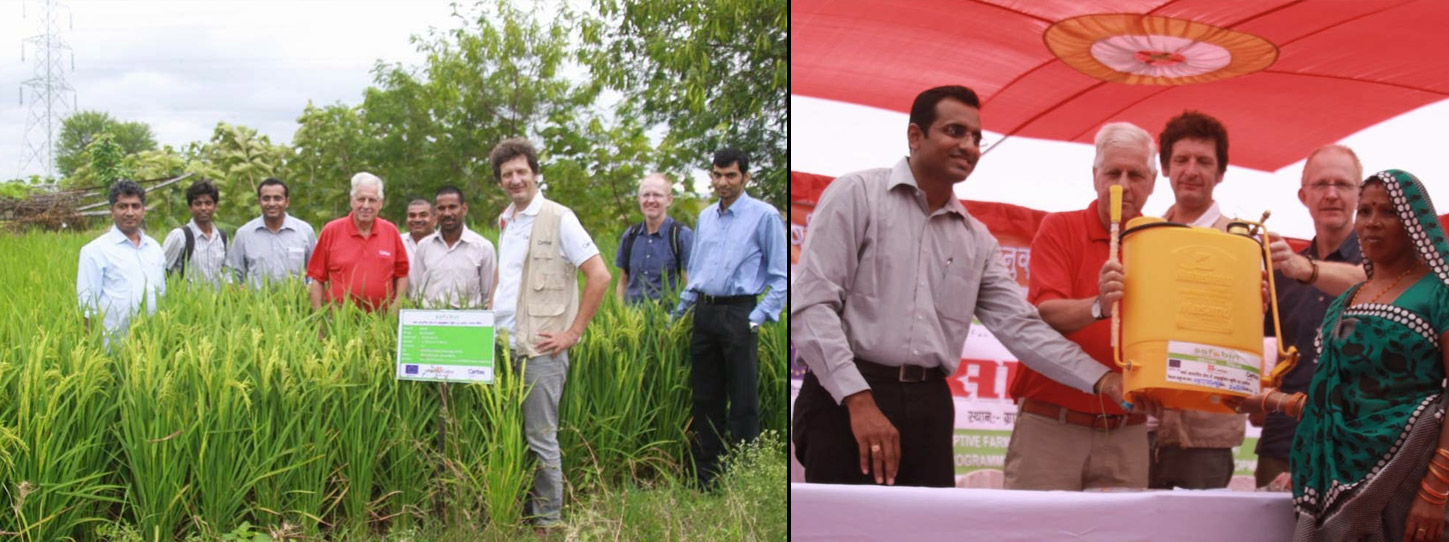
“Smallholder farmers can achieve food security and self-sufficiency with their traditional and innovative agriculture practices that have the potential to solve the adverse effects of climate change”. Caritas Austria president Mr. Franz Küberl observed this while addressing the farmers’ fair organised by Caritas India in Satna on 12 October. The conclave of smallholder farmers who are engaged in adaptive agriculture practices in three districts of Madhya Pradesh was organised as part of the ‘Strengthening Adaptive Farming in Bangladesh, India and Nepal’ (SAFBIN) programme. Implemented by Caritas India, SAFBIN is jointly supported by European Union (EU) and Caritas Austria.
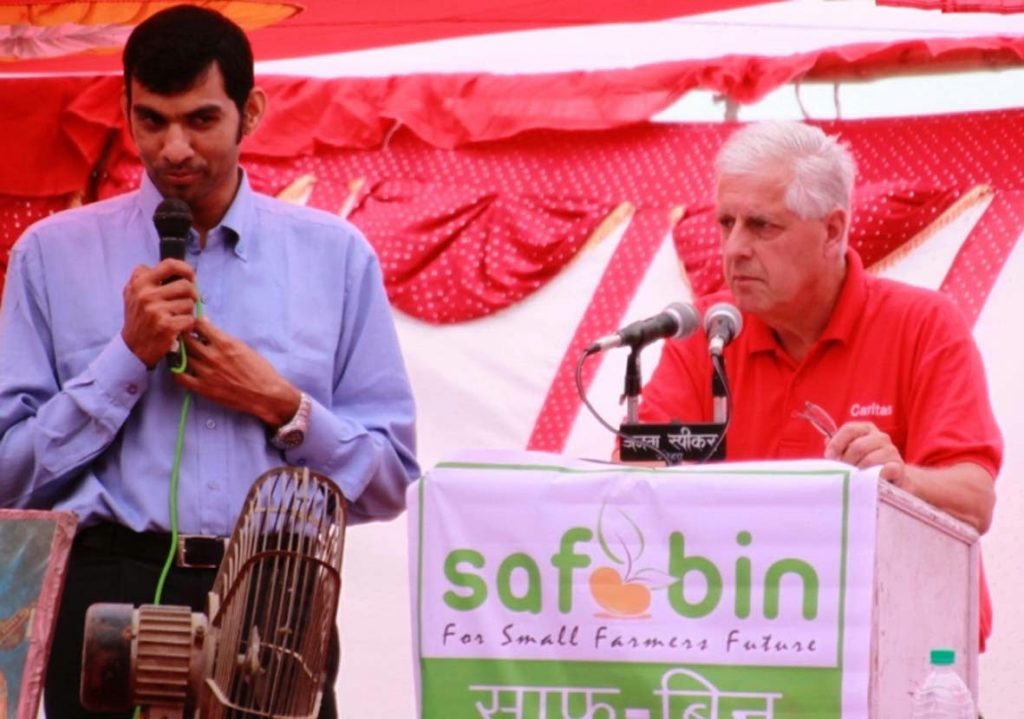
Mr. Franz addressing the smallholder farmers’ fair
Citing the severity of agriculture losses suffered by farmers across the globe due to climate changes, Mr. Franz underscored the need of identifying local solutions for making smallholder farming systems more viable and profitable. “Developing an effective agriculture practice based on the synthesis of modern agriculture methods and local wisdom holds key to the success in the efforts to achieve food security of smallholder farmers”, Mr. Franz said. He appreciated Caritas India for leading the campaign for protecting the livelihood and food security of smallholder farmers in the region. “Quality of life of smallholder farmers is dependent on the adaptability of farming system and the immunity of smallholder farming systems to the vagaries of climate. If we do not make local farming systems robust and sustainable, we will live in poverty which will only push our future generation into greater poverty”, Mr. Franz added.
The farmers’ fair was organised for facilitating the exchange of learning and experience of smallholder farmers who are implementing various trial combinations of paddy, wheat and black gram. Over 400 smallholder farmers from Mandla, Sagar and Satna districts attended the fair and shared the learning and experiences emerging from the three rounds of trials. The farmers fair also showcased the innovations developed by farmers, various trial design illustrations and farm produces.
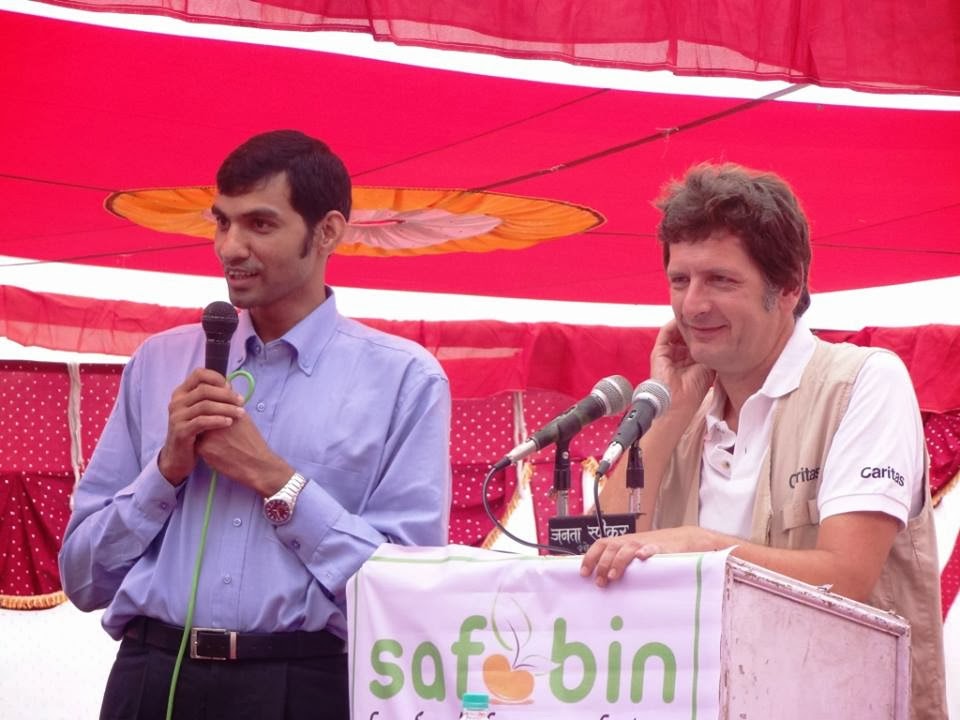
Mr. Christoph addressing the function
Mr. Christoph Schweifer, General Secretary of Caritas Austria, spoke on the occasion and shared his experiences about the general struggles of smallholder farmers. “Smallholder farmers need to have thorough understanding about the various dimensions of climate change and its effects”, Mr. Christoph said. Developing sustainable solutions for combating the ramifications of climate change on agriculture is possible only when communities work concertedly and purposefully. Modern agriculture has made creditable advancements in the direction of mitigating the detrimental climate change effects on agriculture. He expressed hope that SAFBIN will emerge as a platform of communities for technology dissemination which will eventually lead to greater well-being of smallholder farmers.
Mr. Manfred Aichinger, Project Manager of Caritas Austria shed light on the symbiotic relationship between agriculture practices and the prosperity of smallholder farmers. He said that SAFBIN envisages not only the achievement of agriculture prosperity of smallholder farmers but it also seeks to realise better indicators in the sectors of education and health. He appreciated SAFBIN programme for creating an understanding on climate change among smallholder farmers and enabling them to develop locally viable and cost-effective solutions.
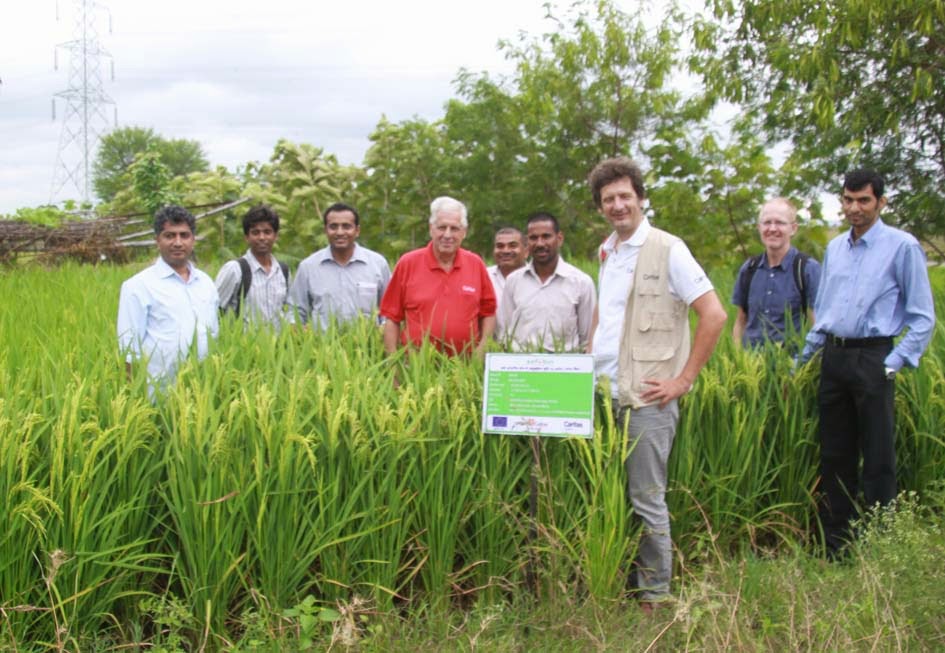
Caritas Austria delegation visiting a paddy trial
plot that experiments spacing for increasing the crop yield
SAFBIN is an agriculture research and development programme which is being implemented in three agro-climatic zones in India, Bangladesh and Nepal. In India, the research trials on food crops are underway in Sagar, Satna and Mandla districts. Mr. Sunil Simon, South Asia programme manager of SAFBIN informed that SAFBIN is a comprehensive agriculture research intervention steered by smallholder farmers’ collectives. The intervention process includes community-level problem screening, scouting of innovations practiced by communities, screening of solutions proposed by mainline agriculture research, blending of solutions, development and refining of trial designs, trial implementation, community analysis and development of candidate models. SAFBIN also strives to restore the sovereignty of local agriculture systems by identifying and promoting traditional knowledge and practices which have great potential to offer solution to the riddle of climate change, Mr. Sunil added.
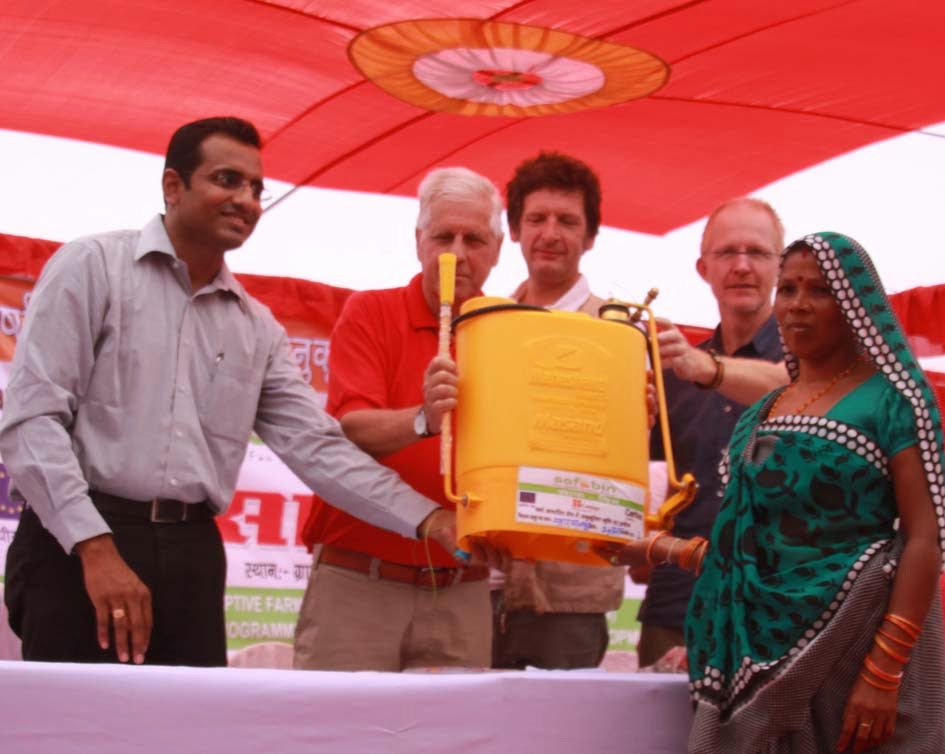
Mr. Franz giving sprayer pump to a leader of farmers’ group
Later, Mr. Franz distributed sprayer pumps to the representatives of Small Holder Farmers’ Collectives (SHFCs). During the programme, SHFCs staged cultural programmes including songs, folk dances and street play. The delegates from Caritas Austria also visited the stalls where smallholder farmers had displayed their innovative equipment, trial plot harvest details and agriculture produces including spices, herbs, yams, tubers and vegetables. After attending the farmers’ fair, Caritas Austria delegation visited paddy trial plots and reviewed the progress of implementation of paddy trials.
Fr. Mathew Cheruvil, director of Samaritan Social Service Society (SSSS) Satna and Mr. Atul Gautam, local village headman, also spoke on the occasion and appreciated the success of SAFBIN which manifested in the form of greater yield and reduced agriculture input cost for the smallholder farmers. Mr. Vivek Tripathi, district project officer of SAFBIN, conducted the programme.